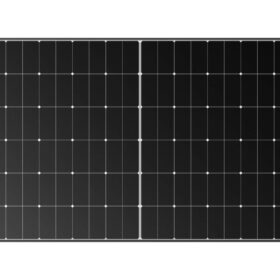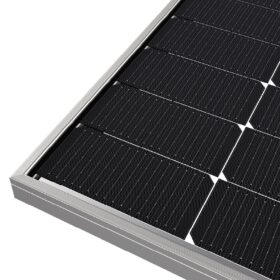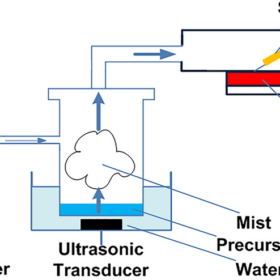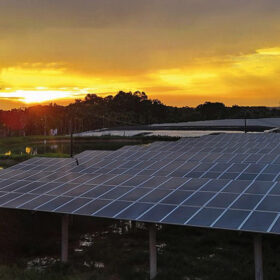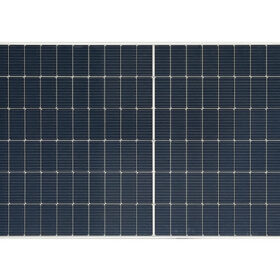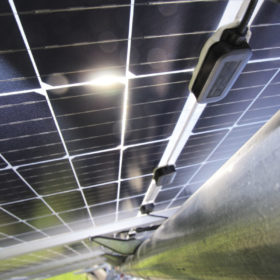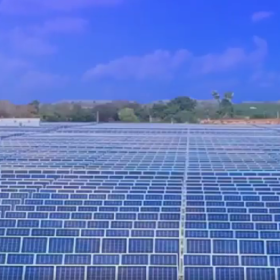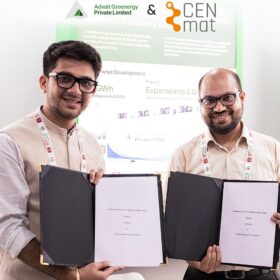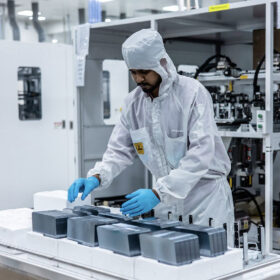Chinese module prices to fall by 15% from Q4 2022 to Q4 2023, says CEA
Solar module prices will be pressured by rising industrial capacity this year, with capacities doubling in the ingot/wafer stages and potentially quadrupling for polysilicon by 2027, according to the latest PV pricing report from Clean Energy Associates (CEA).
Case study demonstrates 5% energy yield boost for n-type TOPCon modules
Data collected from a 30 MW PV project in China’s Tianjin Province demonstrates that n-type tunnel oxide passivated contact (TOPCon) modules achieve a little more than 5% more energy yield than p-type PERC. Analysis by JinkoSolar, which supplied its TOPCon modules to the project, credits the n-type modules’ increased performance to a better temperature coefficient in the project’s hot climate, higher bifaciality and lower degradation.
Avaada Group wins 3 GW solar manufacturing capacity under PLI Scheme
Avaada Group won a production-linked incentive of INR 961 crore ($116.78 million) for 3 GW of wafer-to-module capacity.
Indosol, Reliance win production-linked incentives for poly-to-module manufacturing
Eleven companies have emerged winners in the second round of production-linked incentive scheme for high-efficiency solar modules. Out of these, Indosol, Reliance, and First Solar have won incentives for fully integrated manufacturing capacities.
German manufacturer achieves 80% overall efficiency with new PVT solar module
Sunmaxx says Fraunhofer ISE has confirmed the 80% efficiency of its new photovoltaic-thermal (PVT) module. It consists of 108 PERC half-cells in M10 format, with 400 W of electrical output and 1,200 W of thermal output.
Indian researchers develop low-cost method to produce metal-oxide layers for solar cells
Researchers at IIT Mandi developed high-quality, uniform thin films of nickel oxide on the silicon substrate using an aerosol-assisted chemical vapor deposition technique with nickel nitrate as the precursor material.
Shingle all the way
While shingled cells have been around for a while, Tongwei’s adoption of the technology is notable as it is a manufacturer with considerable scale. If shingling can overcome some hurdles, it could prove a welcome solution as unshaded sites for PV become elusive in mature solar markets.
SDN unveils 595 W solar module with 21.28% efficiency
South Korea’s SDN has developed new bifacial solar modules based on M10 wafers. It claims the new panels are the largest to be produced in South Korea.
Ircon Renewable Power seeks bifacial modules for 600 MW DC solar project in Karnataka
Ircon Renewable Power has tendered the manufacturing and supply of 530 Wp+ mono PERC bifacial modules under the domestic content requirement of a 600 MWp solar PV project at Pavagada.
Relaxation of ALMM order a near-term positive for solar power developers, says ICRA
The Ministry of New & Renewable Energy has exempted solar projects to be commissioned till March 31, 2024, from the requirement to source modules from the Approved Models and Manufacturers (ALMM) list. The move provides developers with the flexibility to source modules at the most cost-competitive rates.
